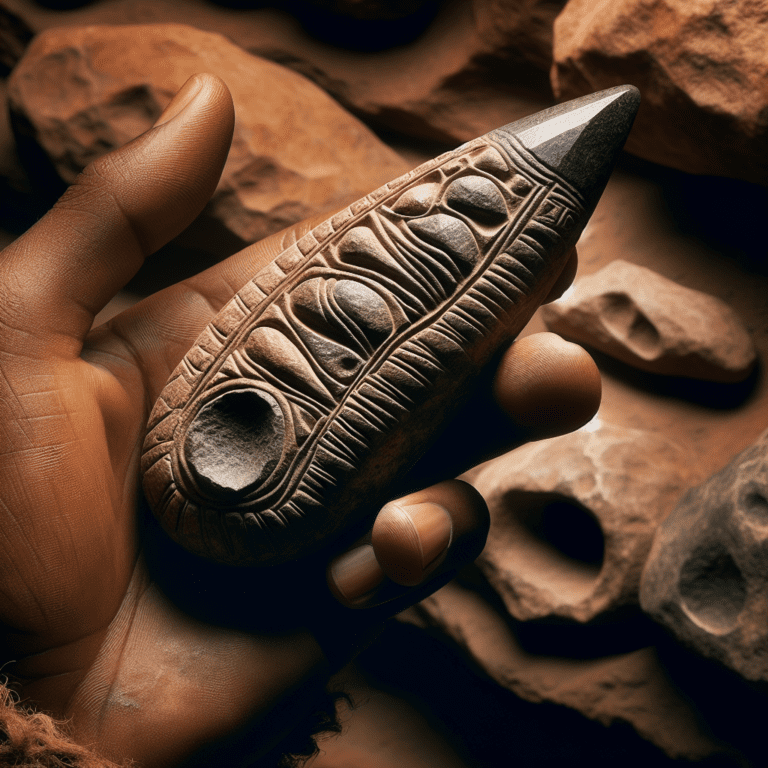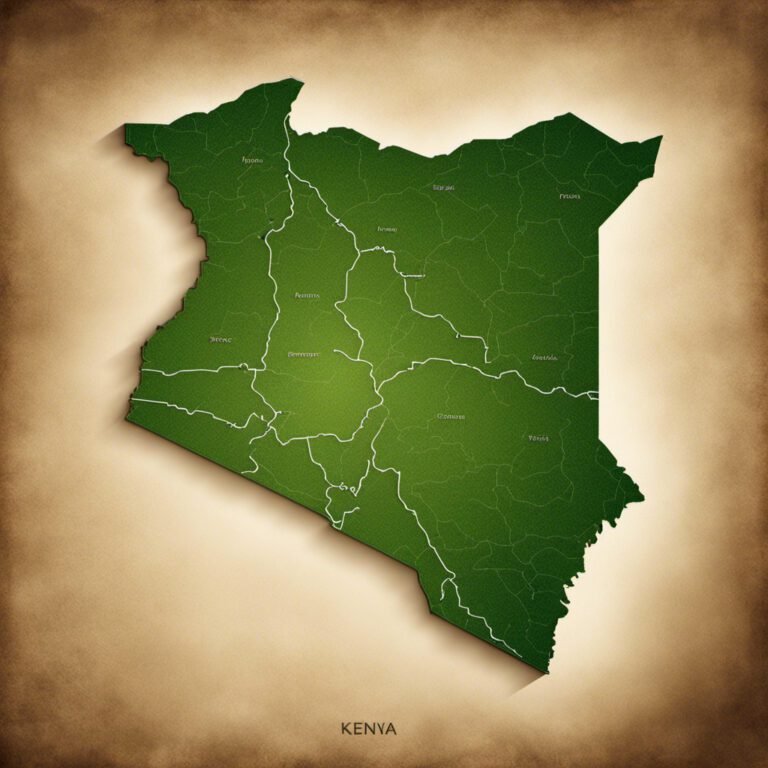What Is The Role Of Music In Kenyan Politics?
In the vibrant world of Kenyan politics, music plays a captivating and influential role that cannot be ignored. From rallying crowds to expressing political beliefs, music has become a powerful tool for politicians and activists alike. This article explores the significance of music in Kenyan politics and delves into how it shapes public opinion, inspires social change, and serves as a compelling medium for political expression. Discover the harmonious relationship between music and politics in Kenya, as melodies transcend barriers and become the soundtrack of a nation’s political journey.
Historical context of music in Kenyan politics
Traditional role of music in African societies
Music has always held a significant place in African societies, serving as a medium for communication, storytelling, and cultural expression. In Kenya, traditional music played a crucial role in uniting communities and preserving cultural heritage. It was a means for conveying messages, values, and history from one generation to another. Through drumming, chanting, and dancing, African societies used music as a powerful tool for social cohesion and identity formation.
Music as a tool for resistance during colonial rule
During the era of colonial rule in Kenya, music emerged as a potent form of resistance. African artists used music to express their discontentment, raise awareness about social injustice, and advocate for independence. Songs were composed in local languages, making it easier for the masses to understand and connect with the lyrics. These songs became a platform for voicing grievances, inspiring unity, and galvanizing collective action against oppressive forces.
Music’s role in the struggle for independence
The struggle for independence in Kenya was marked by a vibrant music scene that played a pivotal role in mobilizing support and fostering a sense of national identity. Musicians composed anthems and liberation songs that became rallying cries for the freedom fighters. These songs ignited a spirit of resistance, courage, and determination among Kenyans, strengthening their resolve to achieve self-rule. Music became a powerful weapon in the fight against colonialism, uniting people from diverse backgrounds under the shared goal of emancipation.
Political expression through music
Artistic freedom and political activism
Music has always been viewed as a form of artistic expression, allowing artists to voice their opinions on political matters. In Kenya, musicians have utilized their creative talents to address socio-political issues, criticise government policies, and advocate for change. They have enjoyed a certain degree of artistic freedom, allowing them to spark public debates, challenge authority, and push for positive social transformation.
Critical commentary on political issues
Kenyan musicians have a long history of offering critical commentary on political issues through their music. They fearlessly tackle topics such as corruption, inequality, and human rights abuses, shedding light on societal problems that need urgent attention. Through their lyrics, they challenge the status quo, holding those in power accountable and demanding transparency and justice.
Use of satire and humor in political songs
In addition to serious political commentary, Kenyan musicians have also embraced satire and humor in their songs to tackle sensitive political subjects. Through witty lyrics and catchy tunes, they skillfully draw attention to societal absurdities, making people reflect on the shortcomings of their leaders. By infusing their music with humor, musicians effectively engage audiences, promoting critical thinking and encouraging civic participation.
Mobilizing and engaging the masses
Music as a tool for mobilization during political campaigns
Political campaigns in Kenya have long relied on the power of music to mobilize and engage the masses. Political parties and candidates strategically employ musicians to compose campaign songs that resonate with voters. These songs are played during rallies, public events, and on the radio, serving as catchy slogans that leave a lasting imprint on voters’ minds. By capturing the spirit of the campaign, these songs create a sense of unity and excitement among supporters.
Rallying supporters through campaign songs
Campaign songs are not only tools for mobilization but also serve as rallying points for supporters. They instill a sense of camaraderie and reinforce a shared sense of purpose among the party faithful. When these songs are performed live at political rallies, they create an atmosphere of enthusiasm and loyalty, energizing the crowd and strengthening the bond between the political leader and their supporters.
Creation of anthems to represent political parties
Political parties often adopt anthems to represent their ideals and core values. These anthems, usually composed and performed by popular musicians, encapsulate the party’s mission and serve as a unifying symbol for party members. They are played at party meetings, conventions, and other political events, reminding supporters of their collective vision and inspiring a sense of pride in their political affiliation.
Cultural identity and nationalism
Promotion of cultural heritage through music
Music is an essential avenue for promoting and preserving cultural heritage in Kenya. Musicians, particularly those representing ethnic communities, use their music to showcase traditional dances, instruments, and languages. By incorporating traditional elements into their compositions, they strive to keep cultural traditions alive and celebrate the rich diversity of Kenyan society. This not only fosters a sense of pride among the respective ethnic groups but also contributes to the national ethos of multiculturalism.
Political parties and ethnic affiliations in music
Ethnic affiliations often influence the choice of music played during political campaigns and events in Kenya. Political parties strategically utilize musicians from specific ethnic communities to appeal to voters of that particular group. This music not only reflects the cultural identity of the community but also aims to establish a connection between the party, its ideologies, and the ethnic constituency it seeks to represent. While this can promote a sense of belonging, it is crucial to ensure that the use of music does not perpetuate ethnic divisions or hinder national unity.
Fusion of traditional and modern music styles
In recent years, there has been a growing trend of fusing traditional and modern music styles in Kenya. Artists are combining elements of traditional African music with contemporary genres such as hip-hop, reggae, and pop. This fusion allows for innovation and experimentation while still honoring cultural roots. Musicians who adopt this approach often aim to reach a broader audience and appeal to younger generations who may be more receptive to modern music styles. This blending of musical traditions also highlights the evolving nature of Kenyan society and its ability to adapt to changing times.
Impact on voter behavior
Influence of music on public opinion and voting choices
Music has a significant influence on public opinion and can shape voters’ perspectives and choices. Catchy campaign songs have the power to create positive associations with a particular candidate or political party. People often form emotional connections with the music they hear, and this emotional response can influence their perception of a political message or personality. Furthermore, music played at political events and rallies can create a sense of excitement and belonging, enhancing the overall appeal of a candidate or party.
Effectiveness of campaign songs in swaying voters
Campaign songs have proven to be effective tools in swaying voters’ opinions and garnering support. A well-crafted song with a compelling message can evoke strong emotions and resonate with people on a personal level. When a campaign song captures the aspirations and concerns of the electorate, it can inspire hope and rally people behind a common cause. The memorable nature of music enables it to leave a lasting impact on voters, making them more likely to remember and support a particular candidate or party.
Role of musicians as political influencers
Musicians often hold significant influence over their fans and followers, which extends to the political realm. Their songs and public statements can sway public opinion, shape political discourse, and mobilize people towards a particular cause or candidate. Musicians who actively engage in political activism and use their platforms to raise awareness about social issues are seen as credible influencers, especially among the youth. Their opinions and endorsements can sway public sentiment and have repercussions on the political landscape.
Controversies and censorship
Banning or censoring politically sensitive songs
Despite the importance of music as an avenue for political expression, certain songs deemed politically sensitive have faced censorship or even banning in Kenya. Authorities occasionally view songs as threats to national security or as incitement to violence, leading to their prohibition. This censorship has raised concerns about freedom of expression and the stifling of artistic creativity. Such actions can hinder open dialogue, limit democratic participation, and hinder the ability of musicians to address pressing social and political issues.
Artistic expression versus political regulations
The tension between artistic expression and political regulations in Kenya has often come to the forefront, particularly concerning politically charged songs or lyrics. Artists find themselves navigating a fine line between creating impactful music and respecting the boundaries set by the government. Balancing the desire for creative freedom with the need for responsible citizenship is a constant challenge for musicians in Kenya’s political landscape.
Reactions and protests against music censorship
Music censorship in Kenya has not gone unchallenged. Musicians, activists, and civil society organizations have condemned the banning and censorship of politically sensitive songs. They argue that artistic expression should be protected and that music plays a vital role in democratic societies. Protests, public campaigns, and legal challenges have been organized to challenge oppressive measures and ensure the freedom of musicians to express themselves without fear of repercussion.
Youth engagement and social change
Music as a platform for youth expression and activism
Music serves as a significant platform for youth expression and activism in Kenya. Young musicians often use their songs as vehicles to voice their concerns about social issues, engage their peers, and rally for positive change. Their unique perspective and ability to connect with fellow young people allow them to address the challenges faced by the youth and advocate for social justice, equality, and inclusive governance.
Influence of musicians on young voters
Musicians have a considerable influence on young voters, who make up a significant portion of the electorate in Kenya. Young people often look up to musicians as role models and are receptive to their messages and recommendations. By aligning themselves with specific political causes or candidates, musicians can effectively sway the opinions and voting behavior of their young fan base. Their artistry enables them to bridge the gap between political issues and the interests of young voters, fostering engagement and active participation.
Songs addressing social issues and injustice
Musicians in Kenya have produced numerous songs that address social issues and highlight various forms of injustice. They use their music to call for an end to corruption, advocate for quality education, tackle unemployment, and promote gender equality, among other pressing concerns. By resonating with the experiences and frustrations of everyday Kenyans, these songs ignite conversations, promote awareness, and advocate for societal transformation.
Political rivalries and music feuds
Musicians used as political pawns
In Kenya, politicians have often manipulated musicians and used them as political pawns to advance their agenda. Musicians are sometimes coerced or incentivized to compose songs that support specific candidates or parties. This manipulation can compromise the artistic integrity of musicians and hinder their ability to serve as independent voices in society. It is essential to counter these practices and empower musicians to express their opinions freely and authentically.
Feuds between musicians representing different political factions
Music feuds between musicians representing different political factions have become a common occurrence in Kenyan politics. These feuds often involve diss tracks, public exchanges, and heated debates over political ideologies and loyalties. While these feuds may fuel political rivalries, they can also overshadow the critical issues at stake. It is crucial for musicians to foster healthy and constructive debates that promote dialogue rather than further polarize society.
Celebrating political milestones through music
Commemoration of key political events through songs
Music serves as a means of commemorating key political events and milestones in Kenya. Songs are composed to celebrate independence, mark successful political campaigns, honor fallen heroes, and acknowledge moments of national pride. These songs capture the collective memory and historical significance of these events, reinforcing national unity and fostering a sense of shared identity.
Music festivals and concerts as political celebrations
Music festivals and concerts provide a platform for artists to celebrate political achievements and milestones. These events attract diverse audiences and create an atmosphere of celebration and joy. Through performances by renowned musicians and up-and-coming artists, these festivals and concerts serve as occasions for political leaders and supporters to come together, express their gratitude, and demonstrate a collective commitment to the progress of the nation.
Role of music in post-election periods
Healing and reconciliation through music
After contentious election periods, music plays a crucial role in promoting healing and reconciliation. Musicians compose songs that emphasize unity, forgiveness, and peaceful coexistence. These songs aim to bridge political divides, mend broken relationships, and foster a sense of national unity. By reminding people of their shared goals and aspirations, music contributes to the process of healing societal wounds and reestablishing trust.
Music’s impact on calming political tensions
In times of political tension and uncertainty, music has the power to soothe and calm people’s emotions. Specially composed songs, often accompanied by uplifting melodies and encouraging lyrics, can promote a sense of hope and stability. By spreading messages of peace and urging political leaders to prioritize the well-being of the nation, music serves as a unifying force during challenging post-election periods.
Promotion of unity and national integration
The unifying power of music becomes particularly evident in post-election periods, where it can bridge divisions and promote national integration. Through inclusive and collaborative music projects, artists from different backgrounds and political affiliations come together to create music that transcends political boundaries. These initiatives foster a sense of belonging and serve as a reminder that, despite election-related disagreements, the strength of the nation lies in its unity and diversity.
In conclusion, music in Kenyan politics has a rich history and continues to play a prominent role in shaping public opinion, engaging the masses, and fostering national unity. From its traditional roots in African society to its emergence as a tool for resistance and mobilization, music has proven to be an influential force for political expression and social change. Despite challenges and controversies surrounding censorship and political manipulation, musicians remain important influencers and catalysts for positive transformation. As Kenya moves forward, maintaining the balance between artistic freedom, political responsibility, and social cohesion will be crucial in harnessing the power of music for the betterment of society.







